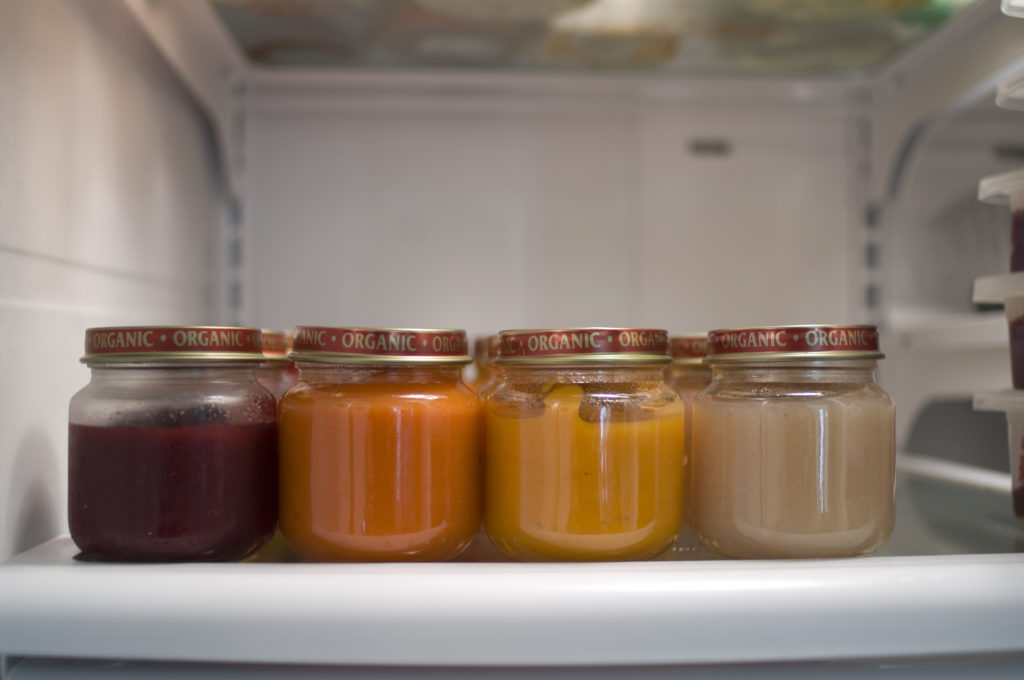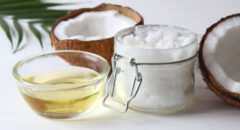
A new congressional report found that commercial baby foods are often tainted with significantly high levels of heavy metals, including arsenic, lead and mercury. The report claims that the companies knew about these high levels, but yet still sold them.
"Dangerous levels of toxic metals like arsenic, lead, cadmium and mercury exist in baby foods at levels that exceed what experts and governing bodies say are permissible," said Democratic Rep. Raja Krishnamoorthi of Illinois, chair of the House Subcommittee on Economic and Consumer Policy, which conducted the investigation, signed by the Democratic members.
The report recommends the U.S. Food and Drug Administration set maximum levels of toxic heavy metals permitted in baby foods and require companies test their finished products, not just their individual ingredients, for toxic metals. It also suggests baby-food makers voluntarily phase out inputs like rice, which tend to test high for heavy metals.
Released Thursday by the Subcommittee on Economic and Consumer Policy, the report was composed following an investigation spurred by allegations in 2019 claiming there were high levels of toxic heavy metals in baby foods. The subcommittee requested internal documents and test results from some of the nation's largest baby food manufacturers including Nurture, Beech-Nut, Gerber, Campbell Soup Company (Plum Organics), Walmart (Parent's Choice brand), Sprout Foods, and Hain Celestial Group (Earth's Best Organics brand).
Of these, Nurture, Beech-Nut, Hain, and Gerber responded to the subcommittee requests which included internal test policies, test results, and what actions companies took if levels of these metals were too high.
The report also specifically calls out Walmart, Campbell, and Sprout for not cooperating, stating the "Subcommittee is greatly concerned that their lack of cooperation might be obscuring the presence of even higher levels of toxic heavy metals in their baby food products than their competitors’ products."
The investigation found arsenic in baby foods made by all of the companies which responded, ranging from 60 parts per billion (ppb) to as much as 180 ppb. Investigators also found lead, cadmium, and mercury, although Beech-Nut and Hain do not test for mercury in their baby food and Gerber "rarely tests for mercury" per the report.
Investigators state in the report "Internal company standards permit dangerously high levels of toxic heavy metals, and documents revealed that the manufacturers have often sold foods that exceeded those levels."
How Dangerous Is it?
"There was a time where we used metals as the predominant pesticide for many years, assuming it was safe," said Dr. Leonardo Trasande, chief of environmental pediatrics at NYU Langone.
Many of these heavy metals have been linked to cancer, chronic disease and neurotoxic effects, but it's the devastating damage that can be done to a developing baby's brain that makes baby food toxicity so critical.
Regarding infants and children, high levels of heavy metals may:
-
- Contribute to behavioral concerns, including attention disorders (ADHD, ADD, etc).
- Increase the risk of cancer
- Contribute to learning problems.
- Slow growth and development.
According to neurology experts Philippe Grandjean and Philip Landrigan in a 2014 report in The Lancet Neurology, “a silent pandemic of neurodevelopmental toxicity” is disabling children around the world and contributing to the meteoric rise of ADHD, ASD, and other behavioral disorders. (2) What is responsible for the rapidly rising rates of behavioral disorders in children? Research indicates that heavy metal exposure promotes neurodevelopmental toxicity and may be one of the underlying causes of childhood behavioral disorders.
“The key is to provide your child with a healthy variety of foods, in moderation," says Registered Dieticitian Evelyn Benden, RD to the Cleveland Clinic. "[This is] so they aren’t eating too much of one thing. They’ll get lots of different nutrients and not an overload of heavy metals.”
“Baby food manufacturers hold a special position of public trust. Consumers believe that they would not sell products that are unsafe. Consumers also believe that the federal government would not knowingly permit the sale of unsafe baby food,” the report says. “As this staff report reveals, baby food manufacturers and the Trump administration’s federal regulators have broken the faith.”








